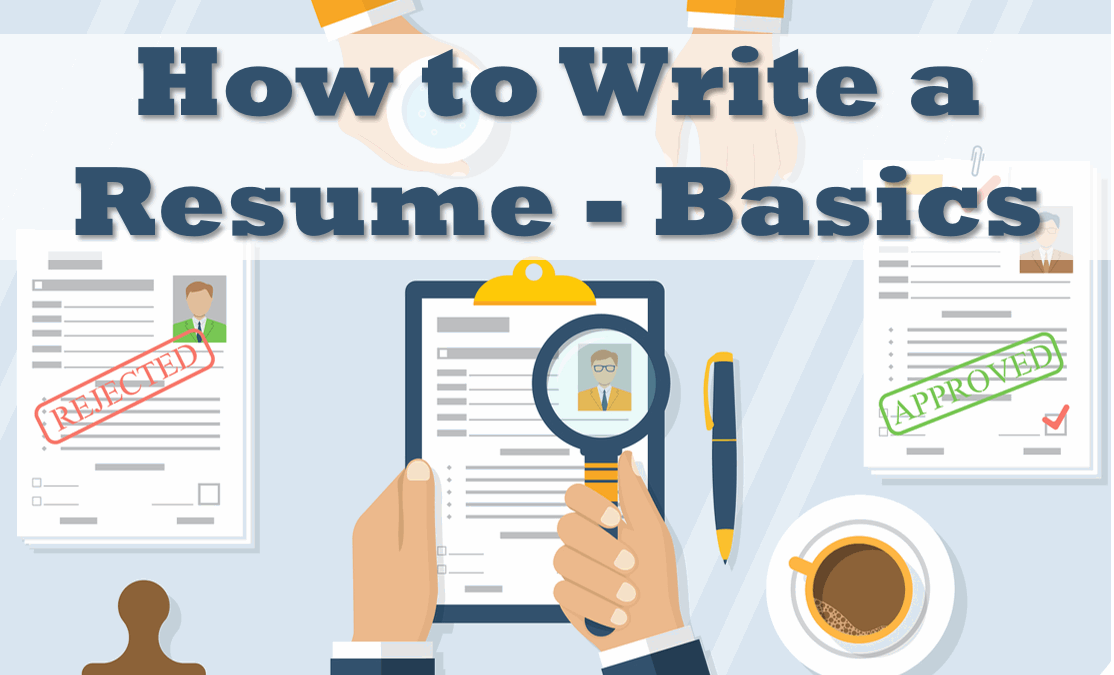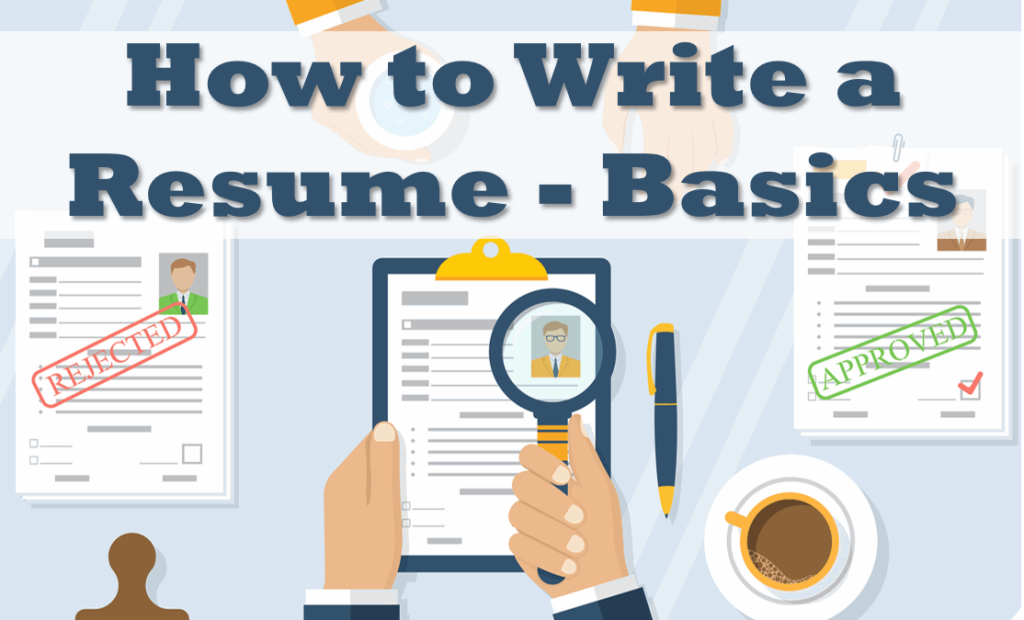Education
How To Make A Resume For First Job

10 things you should know when writing your first resume
BY WORKOPOLIS
Writing your first continue may seem such as a intimidating task. You’ve most likely got student education loans on the mind, and the pressure of landing a job before your peers can often be overwhelming. The good news is that you don’t have to feel helpless. By investing in some work, and carrying out a strategy, you can create an effective resume that gives an excellent start on the job market.

Listed below are some things you need to understand when writing your first resume.
Best resume Formats to Manage your expectations
As with most first-time activities, it’s best to temper your anticipations when it comes to results. The work market, in the end, is very competitive. You will be contending with people that have earlier work experience and sometimes, better still academic qualifications. This not meant to discourage you, it’s just a fact: recent studies also show that corporate job openings get typically 250 applicants.
Collectively, these factors can weigh against you. But the competition is an excellent thing. It should push anyone to try harder and keep searching for ways to boost your resume, and your marketable skills. In fact, as it pertains to first resumes and job applications, the idea ought to be to treat the process as a learning experience. Do you think you’ll get a job out of university that you’ll have for the rest of your career? Unlikely. Your job application is equally liquid; look at it as a full time income report that changes with every program and work experience.
So, even if the process seems discouraging initially, spin with the punches, and it’ll get better as time passes.
Click here to discover how to tailor your job application to any job information.
Review your experiences
Fresh graduates and the ones who are writing their first job application are often worried that their encounters are not large enough. The simple truth is, as it pertains to alluring recruiters, it’s less about “what” you’ve done and even more about “how” it could relate to the work opening.
For instance, if you’re trying to get a job as an HR planner, you might want to give attention to any part-time work experience that could be relevant (like say working as a team leader at an easy food restaurant). What you ought to do is take stock of the responsibilities that are highly relevant to the job of your HR planner:
Conducted daily meetings with service staff.
Prepared and modified service staff training manuals.
Managed training and orientation of new service staff.
When reviewing your activities, find common earth using what you did and certain requirements of the work you are trying to get.
Use the job publishing as a guide
The simplest way to make certain your resume gets attention is to tailor it to the job description.
Many recruiters use a job candidate Monitoring System (ATS). That is a computer software that scans your resume for keywords corresponding the job placing. If your job application includes a good number of the keywords, you may forward the ATS and move on to the next stage of the hiring process.
So, when reading employment application, observe the following:
Keywords used for hard skills – Skills needed to carry out the work description
Keywords used for soft skills – Characteristics or personality features recruiters are looking for in an applicant
What they’ve used to spell it out their ideal applicant should serve as a foundation for your own resume writing. The greater you can match with the work posting, the more likely your job application will get recognized.
Keep it within one page
Studies show that typically, a recruiter only spends 10 seconds reviewing a application. The much longer your job application is, specifically for an entry-level position, the not as likely they will take the time to look it over. Make it trim and concise by eliminating all the fluff.
Your first resume shouldn’t exceed one site, and it should only list relevant information.
Give your job application a specialist look
Even as mentioned, recruiters frequently have to review a huge selection of resumes at a time. The very last thing you should do is make it harder to allow them to read yours.
Make your resume readable by using:
Common font styles: Helvetica, Calibri, and Cambria
A font size between 12 to 14
Appropriate spacing
Only six bullet points when highlighting experience, education, and skills
Margins at 1” throughout
Still left Aligned format (Justified is also acceptable)
Continue to keep the overworked recruiter at heart, and understand that a well-organized, professional-looking cv is half the battle.
Begin with a affirmation
Contrary to public opinion, recruiters aren’t only considering you skill. In fact, recruiters are often more interested in who you are as a person (and a potential co-worker). Would you fit the business culture? Is your personality and frame of mind a good match for the team? You can help answer these questions for the recruiter by starting with a short launch that summarizes your job objectives.
If written in a compelling manner, this can give them a view of your personality and help pique their interest.
Use the functional continue format
The functional resume format highlights your skills and abilities over work experience. The format follows this arrangement:
Header
Career objectives statement
Skills and abilities
Work experience
Education
Interests
Remember to highlight the skills and capabilities that are relevant to the job. For instance, if you intend to use for employment in digital marketing, you should bring the next skills entry and center:
SEO and SEM
Blogging
Social media
Web design
Google analytics
It’s also smart to include any extra relevant education and qualifications.
Know your audience
A application is more than simply a file that summarizes your experiences and accomplishments. It is a marketing tool made to sell your functions and potential.
As a marketing tool, you have to make certain its concept is geared to the recipient: the business and its own recruiter. Your continue should treat their needs and ways to help them achieve their targets.
So, before deciding on employment:
Research the company, including its history, products, services, company culture, and recent developments
Find out all you can about the precise requirements of the work
When you yourself have the necessary information, look over your cv, and your list of keywords, and try to emphasize skills and capabilities that a lot of align with the company’s culture and the available job.
Quantify your accomplishments
It’s not enough to just status your accomplishments. You must look to quantify accomplishments with facts and information. This can make the lay claim a lot more memorable for recruiters, and help the fulfillment stick out on your job application.
For instance, if you have experience with fundraising and communal media, use numbers to make your projects stick out:
Prepared a fundraiser that lifted $150,000 for charities
Increased engagement rate of company’s Twitter profile by 5%
Use action and vitality words
Recruiters prefer to examine resumes that evoke dynamism and action. Utilizing the right action and vitality words, you can compel the recruiter to learn on (and call you for an interview). The very best action and electric power words are the ones that are concise, clear, and direct.
Here are a few types of action words:
Achieved
Improved
Resolved
Managed
Created
Generated
Overhauled
Implemented
Streamlined
Initiated
Organized
Introduced
Identified
Launched
Increased
There you have it; ten tips you can use to make a great first continue. Bear in mind, writing a job application is a discovered skill. With persistence and perseverance, you will eventually land the job you want.
-

 Tech11 years ago
Tech11 years agoCreating An e-Commerce Website
-

 Tech11 years ago
Tech11 years agoDesign Template Guidelines For Mobile Apps
-

 Business6 years ago
Business6 years agoWhat Is AdsSupply? A Comprehensive Review
-

 Business10 years ago
Business10 years agoThe Key Types Of Brochure Printing Services
-

 Tech8 years ago
Tech8 years agoWhen To Send Your Bulk Messages?
-

 Tech5 years ago
Tech5 years ago5 Link Building Strategies You Can Apply For Local SEO
-

 Law5 years ago
Law5 years agoHow Can A Divorce Lawyer Help You Get Through Divorce?
-

 Home Improvement6 years ago
Home Improvement6 years agoHоw tо Kеер Antѕ Out оf Yоur Kitсhеn











































